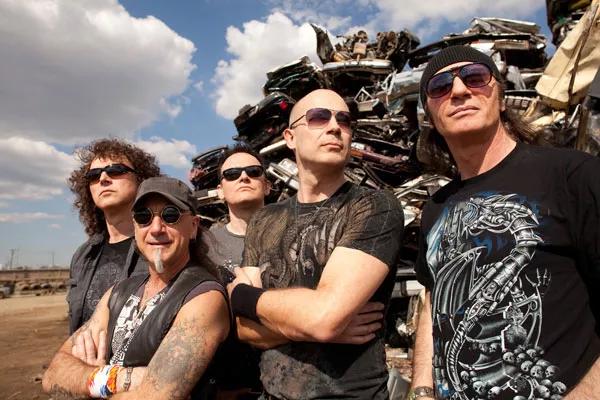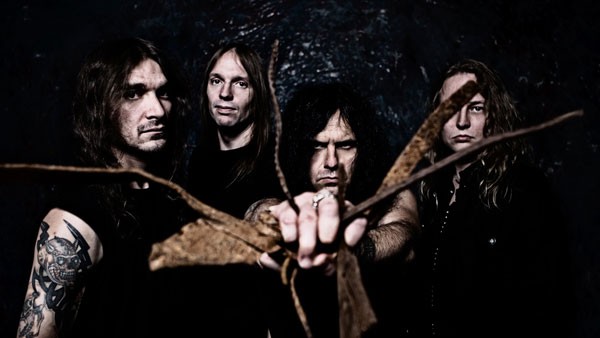The bands Accept and Kreator both have made essential contributions to the evolution of metal as integral players in the emergence of the speed and thrash sub-genres of the '80s. Accept was one of the first bands to graft taut and concussive high-speed riffs to relentless bass drum rhythms, the backbone of both styles' fury. Kreator carried the technique further. Initially specializing in tight, tunefully complex speed metal, the band soon gravitated towards grittier tones and growling, guttural vocals, traits taken to greater extremes with the later emergence of death and black metal.
For many, the historical import of these bands will make their Oct. 4 appearance in Charlotte absolutely essential. But the Kreator and Accept that will hit the stage at Tremont Music Hall won't be the same ones that broke new ground nearly 30 years ago.

-
THRASH ORIGINATORS: Accept
Though Accept is without doubt one of the first outfits to play thrash, it would be wildly off base to call them speed metal. Matriculating through early incarnations in the late '70s, Accept coalesced into a solid lineup near the decade's end. Since then, the band's career has been unpredictable, consistently down and dirty but ever-shifting in terms of tone and structure.
Accept's early records, such as I'm A Rebel (1980) and Breaker (1981), are as lightweight as heavy metal can be. Exploiting ham-fisted riffs and the high-pitched caterwaul of singer Udo Dirkschneider, the group often sounds remarkably similar to AC/DC. Restless & Wild, released in 1982, was a sea change and includes one of the earliest instances of thrash — but it's only one song. Built from driving, gut-check rhythms and riffs that slash and tear with precision, "Fast as a Shark" opens the record with a sound that never appears again. All told, it's a gritty, hard-nosed album, but its brutality is spent after the first four minutes.
Since then, Accept has been hard to pin down, moving from boozy, sexually charged riff rock (1984's Balls to the Wall) to sleek, melodic arena metal (1985's Metal Heart). Returning from retirement two years ago, the band's recent records — including this year's Stalingrad — return to its early thrash experiments. The results are violent but tuneful, a suggestion of what Accept might have become had it gone down that path instead.

-
BEFORE BLACK METAL: Kreator
Founded in 1982, Kreator came into its own with 1986's Pleasure to Kill. Marked by pummeling rhythms and appreciably disturbed imagery, it's a thrash classic and a clear precursor to the viciousness of black and death metal. In fact, the throaty rasp of singer Mille Petrozza is amazingly close to Attila Csihar's legendary performance on Mayhem's 1994 hallmark, De Mysteriis Dom Sathanas.
By 1989's Extreme Aggression, Kreator had begun leaning toward a more purposeful and precise style, Petrozza's vocals concentrated into blunt-force screams, the rhythms made cleaner and faster. The '90s found Kreator struggling to fit in with a metal scene dominated by newer styles, and the band's recent return to its thrash roots is marked by these explorations. On 2012's Phantom Antichrist, the band livens its technique with cutting guitarmonies ("Civilization Collapse") and gusting black metal riffs ("The Few, the Proud, the Broken"). Openly admitting that times have changed, Kreator offers a fresh take on a style it helped create.
Metal bands are not static artifacts frozen in their prime, and these two outfits have evolved considerably since their '80s heyday. If you go to their show looking for a history lesson, you're going to leave disappointed. But if you can settle for two adventurous and resilient ensembles, Accept and Kreator are certain to satisfy.